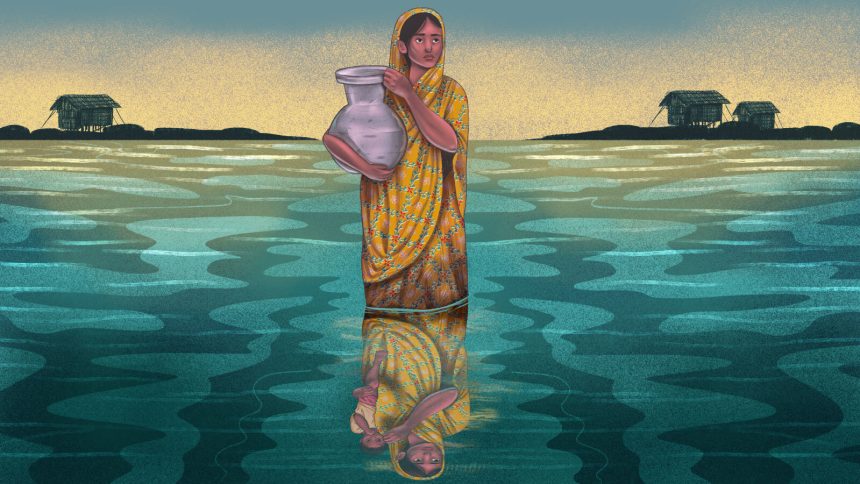This article is part of the series “Expecting Worse: Giving Birth on a Planet in Crisis,” a collaboration between Grist, Vox, and The 19th that explores the impact of climate change on reproductive health, from menstruation to conception to birth.
Today, Khadiza Akhter, a 30-year-old garment factory worker, resides in Savar, a suburb of Dhaka, Bangladesh. Her clean, organized concrete house is adorned with green shutters and clothes hanging on lines outside. A water spigot provides her with clear, clean water with just a twist of a knob – something she considers a “blessing of God.”
Originally from Satkhira, a district facing water scarcity due to rising sea levels and saltwater intrusion, Akhter vividly remembers the hardship of drinking salt-contaminated water. The salty water caused various health issues for her, impacting her menstrual cycle and overall well-being.
Having made the move to Savar a decade ago for cleaner water, Akhter faced challenges adapting to city life but was determined to provide a better future for her future children. She knew the negative effects of saltwater consumption on reproductive health and decided to avoid starting a family in Satkhira.
Saltwater intrusion, exacerbated by climate change, is a pressing issue in coastal regions worldwide, threatening the safety of freshwater supplies and the health of women in those areas. In Bangladesh, sea level rise has already led to the inland encroachment of saltwater, affecting millions of people.
The legacy of resilience in Satkhira, with its history of adapting to cyclones through shrimp farming, is being eroded by climate change. Rising sea levels, intense storms, and saltwater intrusion pose a significant threat to the region’s agriculture and communities.
The shrimp farming industry, neglected risks of adding saline to freshwater ponds, exacerbates salinization of limited drinking water supplies in Satkhira. Combined with restricted flow of the Padma River into Bangladesh, due to the Farakka Barrage in India, the region faces a dire water crisis.
As climate change worsens, the impacts of saltwater intrusion on reproductive health will likely become more widespread, underscoring the urgency of addressing this issue globally.






